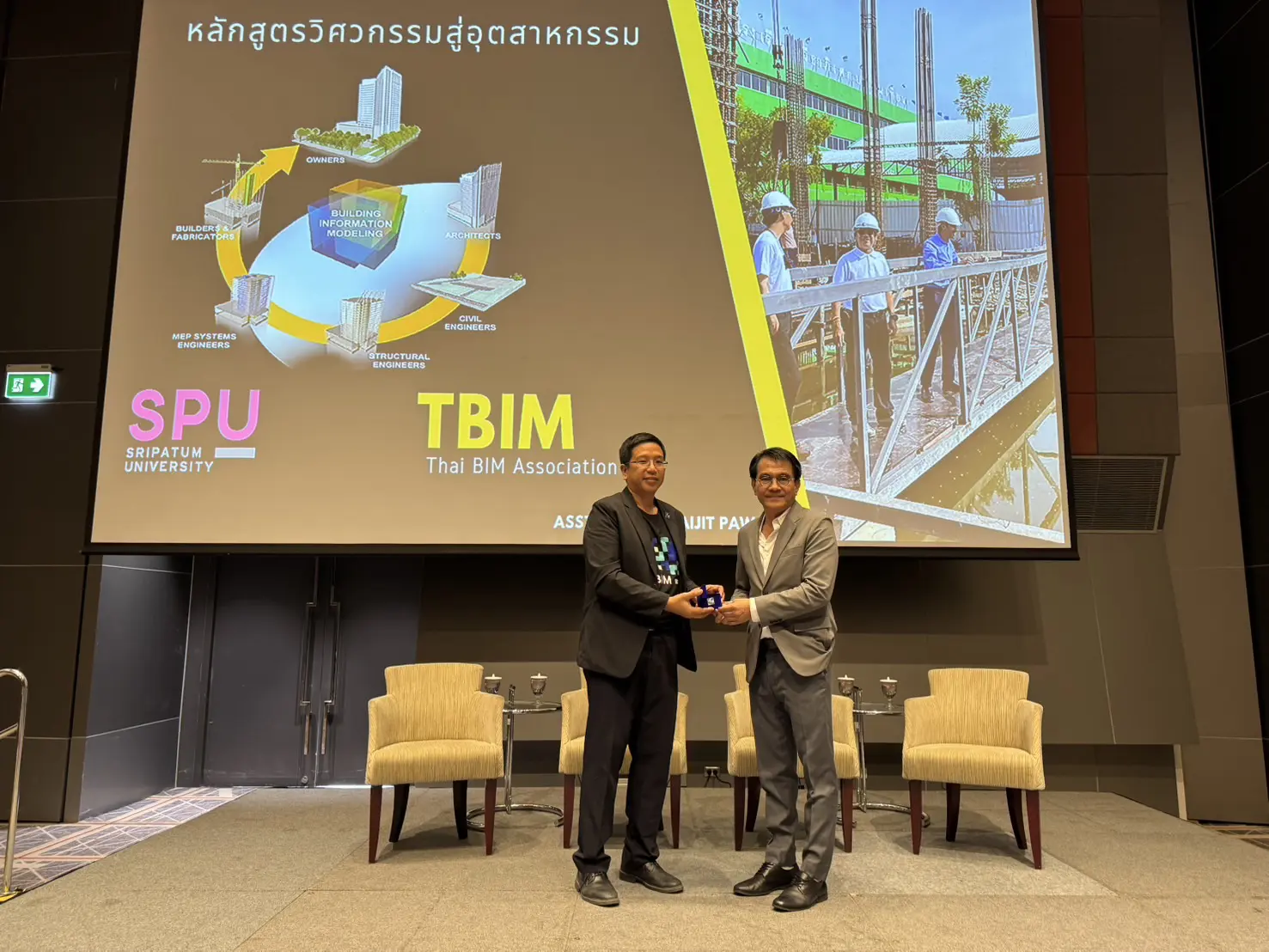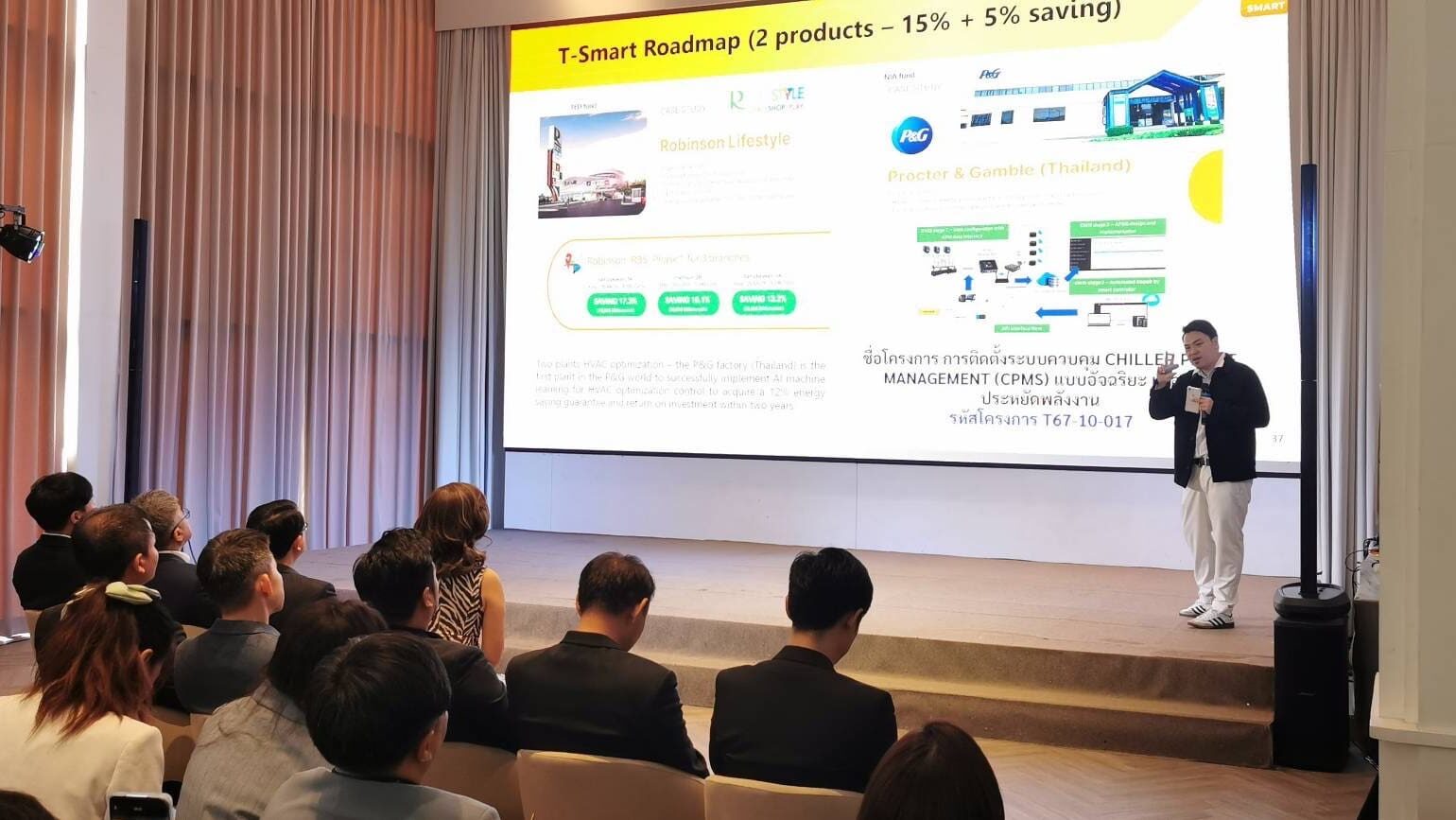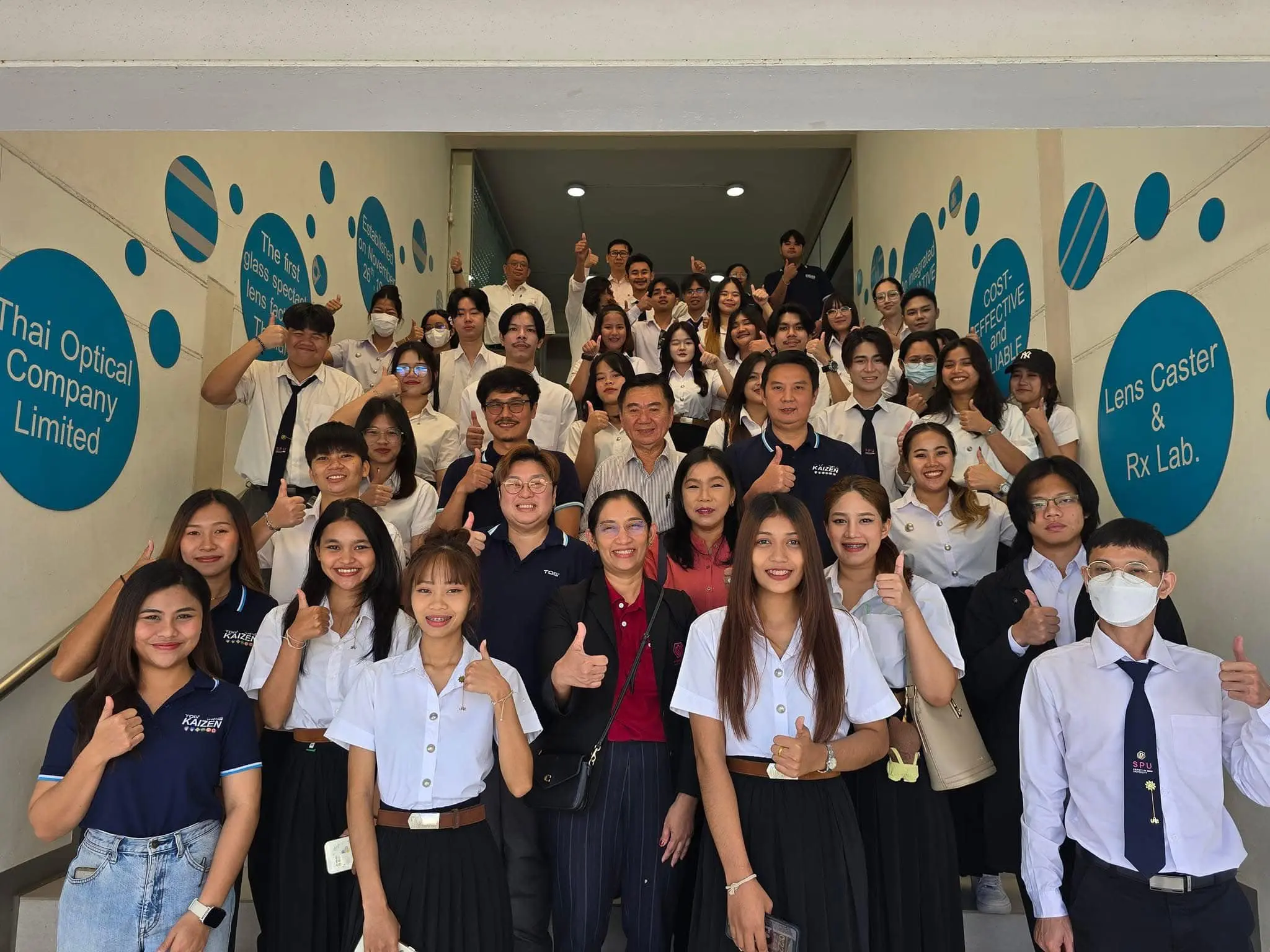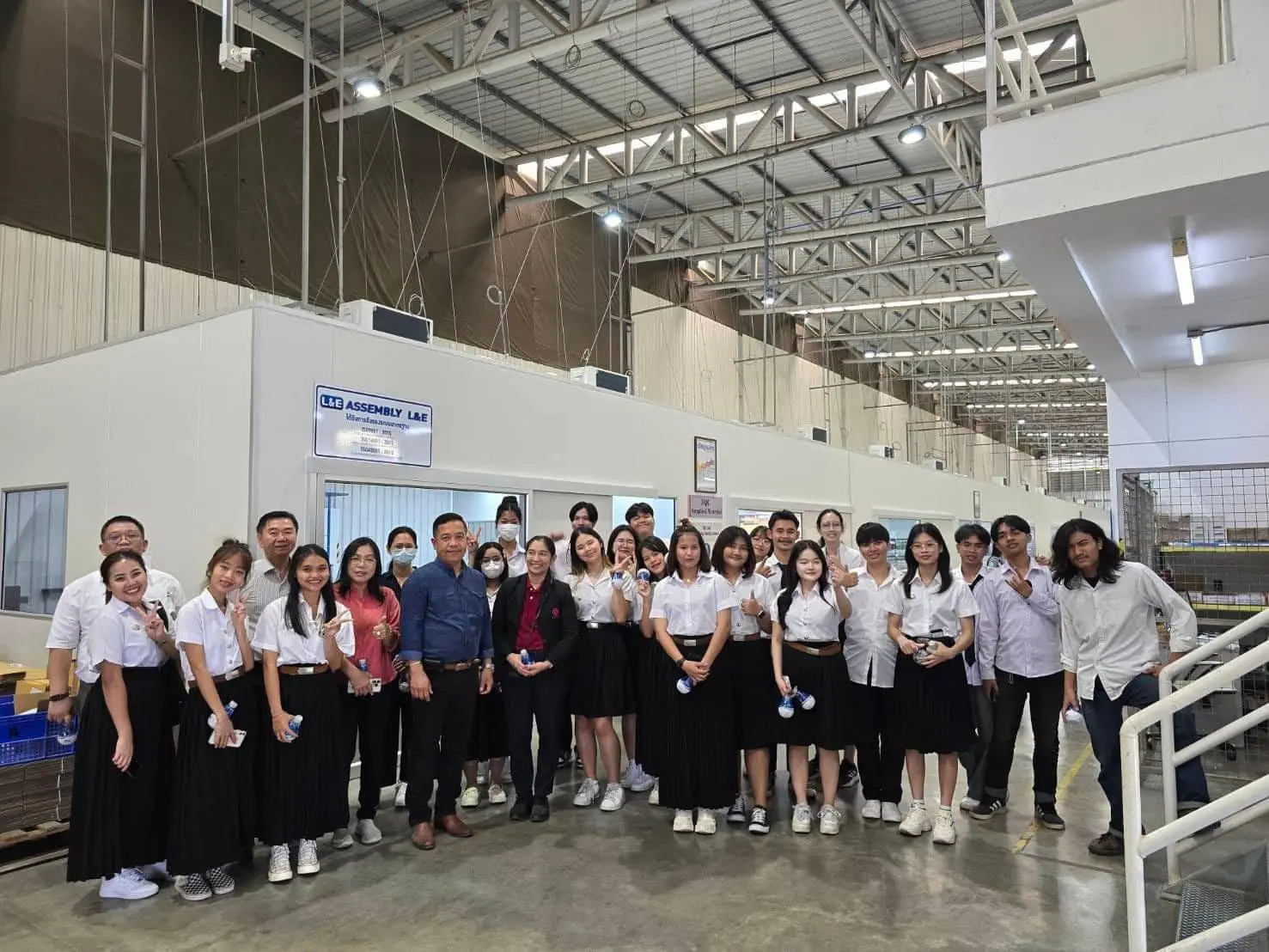Sripatum University (SPU) emphasizes driving the Thai economy to grow exponentially, distributing opportunities, distributing income, and bringing prosperity to local communities. Therefore, it aims to produce quality students in their careers through learning from actual practice, with qualified lecturers who are experts in all areas of electrical engineering knowledge and are recognized by the public and private sectors. They also have research works and develop teaching and learning to continuously expand knowledge.
Modern technology is transforming the Thai industrial sector into a major structural reform. In addition to focusing on productivity competition, the industrial sector is also focusing on the sustainability of the production chain. Electrical engineering is a growing field that plays a role in using electrical systems to create innovative technologies and solve many social problems, such as solar energy systems that are linked to the BCG economic model (economic model for sustainable development), which is a new economic theory that combines three main development areas: the bioeconomy, the circular economy, and the green economy, to create tangible social and economic development for the country, along with environmental conservation.
Asst. Prof. Dr. Porachai Chuanuwatanakul, a lecturer in the Electrical Engineering Department, Faculty of Engineering, Sripatum University, said that electrical engineering is a branch that can work on tangible things and is close to everyone’s life. This branch has grown significantly since the introduction of electricity in the 19th century until today. Many industries use electrical engineering, such as communication, public utilities, technology, transportation, and government work. Electrical engineering is a modern engineering branch that uses physics, electronics, and electromagnetism to design and develop products that use or produce electricity. Working in electrical engineering is beneficial to both individuals and society because it helps develop infrastructure that has a direct positive impact on people’s and society’s quality of life. This gives electrical engineers a high chance of career advancement, whether they are employees in an organization or start-up entrepreneurs. It is also a career with competitive salaries.
For the electrical engineering program at Sripatum University, it is certified by the Engineering Council of Thailand. After graduation, students can apply for the Engineering Professional License Examination (EPLA), or Engineering Professional License. Studying this field is not as difficult as many people think because the teachers will teach in a way that is easy to understand and can be used practically.
“I emphasize teaching using problems as a base through the concept and principles of IPO, which are: 1. The I process is to prepare the body to be patient, the mind to be focused, and the intellect to have a way of thinking. 2. The P process has 5 steps: 1. Learn to be able to explain. 2. Understand until you can write. 3. Apply to present. 4. Practice until you can teach others. 5. Create your own way of thinking. 3. The O process is a mission for students to teach each other through activities and missions.”
Asst. Prof. Dr. Porachai also said that he was a committee member in drafting the TOR for the village fund solar farm system under the Village and Urban Community Fund Office (VUFO). The project’s goal is that the government wants to raise income and improve the quality of life because some villages in remote areas do not have access to tap water and electricity. The government has set a target to produce 1 megawatt of electricity per village, with a target of 800 megawatts of total production and installation in 800 villages because it wants to push for the establishment of small community power plants in various areas where people can access and own the projects. I want to help promote community development and allow people in those villages to be able to take care of the solar farm system by themselves, through providing advice on technology and batteries.
Sripatum University places importance on green energy, solar cells. There is teaching from the design of solar farm systems, solar rooftops, or even solar pumps, focusing on new job opportunities for students. The design of these 3 solar systems is in the Problem-based Learning course. It uses real problems in Thailand as a starting point for students to analyze. There are also guest speakers from the Engineering Council and private companies such as Siam Solar Cell Co., Ltd. to provide advice and have students work in teams to exchange experiences.
“Those who are interested in studying electrical engineering must start with determination, discipline, patience, and effort. Practice what you have learned from the beginning to the end by yourself and do it repeatedly until you gain expertise. Don’t forget to learn new things, new technologies, and be able to adapt to changes. Most importantly, if you don’t understand something or have any problems, you should always dare to ask your teacher or instructor,” Asst. Prof. Dr. Ponchai concluded.












